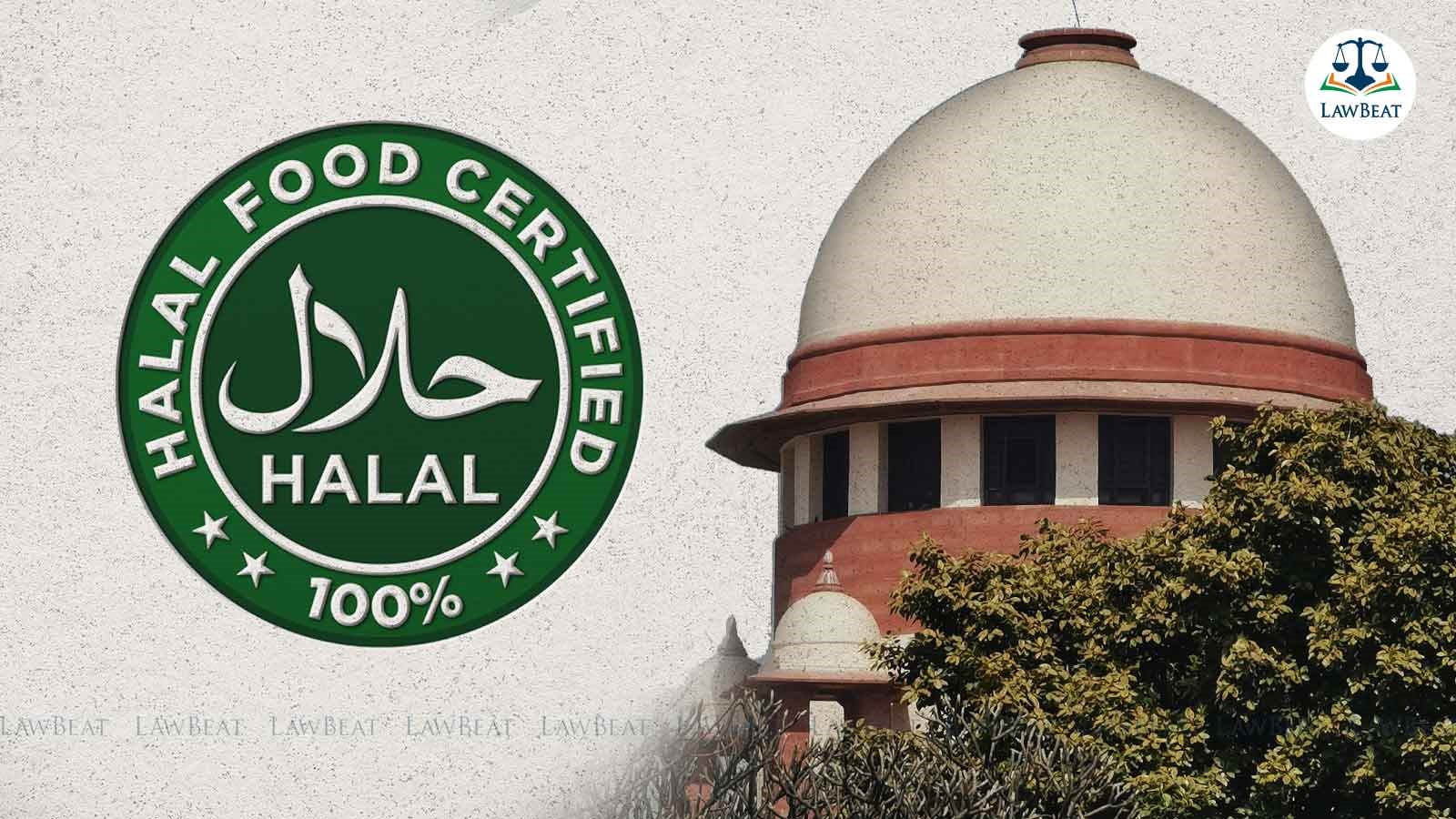Halal ban in Uttar Pradesh| Supreme Court issues notice in plea by Jamiat Ulama-e-Hind Halal Trust

In a similar plea, Court has been told that Uttar Pradesh's ban has national implications and affects the freedom of religion
The Supreme Court has today issued notice in another plea challenging the Halal Ban imposed in the state of Uttar Pradesh.
While issuing notice in the plea filed by Jamiat Ulama-e-Hind Halal Trust, a division bench has also protected Jamiat Trust's chief Mahmood Madani and other office-bearers from any coercive action.
A bench of Justices BR Gavai and Sandeep Mehta has accordingly agreed to hear a writ petition filed under Article 32 of the Constitution.
Earlier, the same bench had sought the Uttar Pradesh government's response in a plea by Halal India Private Limited and Jamiat Ulama-e-Maharashtra challenging the ban imposed on halal products in the state.
In November last year, Uttar Pradesh government had imposed a ban on the "manufacture, sale, storage, and distribution of halal-certified products."
It has been contended that the ban violates fundamental rights and undermines established certification processes. It has been added that the ban is a misconceived action causing chaos for retailers and affecting legitimate trade practices.
When the court questioned as to why the High Court had not been approached, Senior Advocate Siddharth Aggarwal and Raju Ramachandran, appearing for the petitioners, in response said that the ban had wide ramifications, including interstate trade.
Notably, in 2022, a PIL was filed by Advocate and Social Activist Vibhor Anand seeking directions of the court to ban Halal certified products across India, withdraw Halal Certified products from markets & declare Halal certifications issued since 1974 null & void.
The plea further alleged that in India, halal certification is done by five or six major certification organisations and that such organisations have religious backgrounds like the Jamiat-Ulama-E-Maharashtra and Jamiat-Ulama-i-Hind Halal Trust.
According to the plea the certification procedure as listed on the website of Jamiat-Ulama-E-Maharashtra states that a team of two auditors shall audit the production facility and based on their report and documents submitted the technical and Sharia committees will assess and approve the certification. The plea alleges that the process does not appear to include any scientific or analytical testing of materials or the final product. According to the plea “It is obvious that these organisations play the role of influencers for acceptance of the certified products by Muslims worldwide. The government per se has no role in this process.”
Case Title: Jamiat Ulama-I-Hind Halal Trust vs. State of UP
